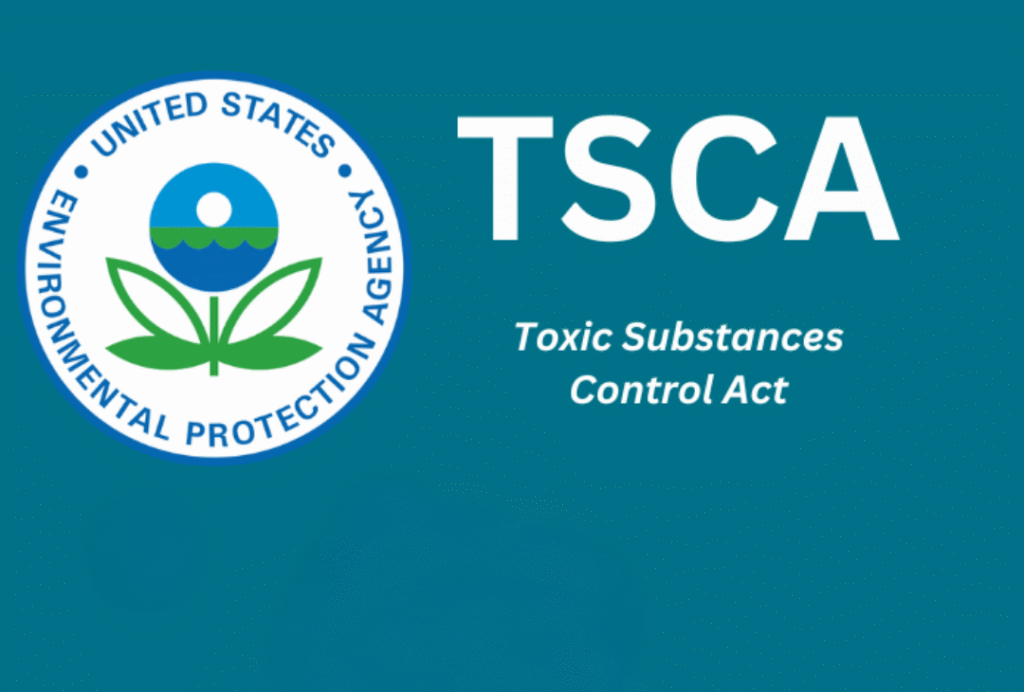
Definition and Importance of TSCA
TSCA (Toxic Substances Control Act) is a regulation enacted in 1976 and updated in 2016 with the Lautenberg Chemical Safety Act. Administered by the US Environmental Protection Agency (EPA), it oversees the safety of all chemicals manufactured or imported into the US.
Objective:
- Protecting human health
- Freeing the environment from chemical risks
- Ensure transparency for all chemical products imported or marketed in the US
TSCA is one of the most critical regulations for exporters sending chemical products from Turkey to the US.
Products Covered by TSCA
TSCA covers a very wide range of products. Among the chemical-based products exported from Turkey, the following stand out:
- Adhesives: PVA, hotmelt, solvent-based or polyurethane adhesives
- Solvents Solvents used in industry
- Paint and coating products: Packaging and industrial coatings
- Polymer and plastic raw materials
- Filling and coating additives
TSCA Inventory control is mandatory for each of these products.

TSCA Compliance Process - Step by Step
1. TSCA Inventory Control
Check whether your product is on the EPA's official list.
- If it is on the list → direct certification is done.
- If not → "Premanufacture Notice (PMN)" process is initiated.
2. TSCA Certification
At the time of each import, one of the following declarations is made to US Customs
- Positive Certification: The product complies with TSCA.
- Negative Certification: The product is outside the scope of TSCA.
3. MSDS/SDS Documents
Detailed safety information (Safety Data Sheet) of the chemical content should be prepared and presented in TSCA compliant format.
4. EPA Notifications
If the product contains a new or unlisted chemical, the EPA is pre-notified with a "Premanufacture Notice". This process can take 90-180 days.

Risks of Not Complying with TSCA
Failure to achieve TSCA compliance for exports to the US:
- Blocked at Customs: The product is held at the port or sent back.
- Fines Fines of up to USD 37,500 per day may be imposed for non-compliance.
- Loss of Commercial Reputation: Distributors and buyers refuse to work with incompatible products.
- Amazon and E-Commerce Risks: Platforms such as Amazon do not allow the sale of products with chemical ingredients that are not TSCA compliant.
Practical Advice for Turkish Exporters
- Early Preparation: TSCA Inventory must be checked before shipping to the US.
- Labels and Documents: SDS documents must be complete and up-to-date.
- Working with a representative in the USA provides a great advantage in order to make declarations smoothly in the US Customs process.
- TSCA for your chemical products and TSCA for your food and cosmetic products FDA consultancy to avoid problems when entering the United States
- Amazon Sales: If the product will be listed on Amazon, TSCA compliance must be supported by verifiable documentation in the seller panel.
Frequently Asked Questions (FAQ)
Is it TSCA certified?
TSCA does not issue a certificate on its own. The exporter or importer submits a TSCA Certification (positive/negative) declaration to CBP.
What is TSCA Inventory?
EPA's list of registered chemicals. If the product is on this list, it can be imported. Otherwise a new notification to the EPA is required.
Who must comply with TSCA?
All exporters and importers of chemical products to the US.
How long does the TSCA registration process take?
It depends on the condition of the product; it can be quick for existing chemicals, and on average 3-6 months for new products.
What happens if TSCA compliance is not achieved?
The product does not clear customs, is returned and high fines apply.
What is the difference with theFDA
FDA regulates food, cosmetics and pharmaceutical products; EPA - TSCA regulates industrial and chemical products.

